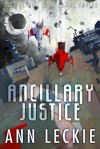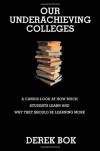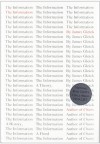Currently reading
McGlue
Knife Fight and Other Struggles
Far from the Tree: Parents, Children, and the Search for Identity
The Good Lord Bird
Ancillary Justice
Our Underachieving Colleges: A Candid Look at How Much Students Learn and Why They Should Be Learning More (New Edition)
Dissident Gardens
Nightmare Movies: Horror on Screen Since the 1960s
The Information: A History, a Theory, a Flood
Complete Novels
 A small range of damn good brief reviews by GR pals has me sweating my own take on DeLillo's latest, not least because that take is itself complicated by a blur of expectations for the novel and a (lovely!) dissonant confounding sense of mystery in the novel. I finished and almost immediately went back and read the last half again, and then over the next couple days read the whole book again. (This would be a feat if either a) the book were long, which it is not, or b) I was six.)
A small range of damn good brief reviews by GR pals has me sweating my own take on DeLillo's latest, not least because that take is itself complicated by a blur of expectations for the novel and a (lovely!) dissonant confounding sense of mystery in the novel. I finished and almost immediately went back and read the last half again, and then over the next couple days read the whole book again. (This would be a feat if either a) the book were long, which it is not, or b) I was six.) But, hell, that begins to suggest why the book is worth your time -- not because it thrills with a vague existential suspense we itch to resolve ('though it does that), nor because it flirts with Deep Questions which Good Readers and academics for generations to come will ponder over ('though, alas, it does that, sort of). No, I'm scratching at a different itch.
The book opens and closes in an art gallery, a showing of Douglas Gordon's 24 Hour Psycho, which is exactly what its title names: Hitchcock's film, slowed down to a stately frame by frame motion over the course of one whole day. That piece demands--or cagily invites, with an almost diffident charm (pay attention, if you want)--that you not just see the film differently but that you see how you're seeing. At its best, this novel--like its author, at his best throughout his career--doesn't just get you to rethink how you see X but to engage with the nature of seeing.
Hitchcock's an interesting central MacGuffin, part of a wickedly effective book-ending frame for the novel that suggests an answer to the mysteries of plot, when in fact this frame is simply a provocation to engage. (Note to future academics: keep an eye out for possible theses on the Lady Vanishing, on The Deep Structures of Hitchcockian Plot in Don DeLillo's Point Omega, etc...) Hitchcock's an artist who mined one particular vein of obsessions over, and over, and over again. Geoff Dyer's review in the NY Times calls late-period DeLillo on the carpet for just this flaw, as have others reading this (and his last few) novels: "The good bits in “Point Omega” keep reminding you of older good bits that turn out also to be better bits."
No doubt I too flirted with this complaint for this (and prior) novels. As a long-time DeLillo fanboy (I've even read Amazons), it's easy to come up with a short list of DeLillean "echoes" in Omega: the image, the Image Culture, the Real, state and anti-state violence, history, the deathward turn of plots, the fruitless quest for some act which will defer or escape death (art, assassination, Physics, poker, and always always always the baroque jargon of an "expert" discourse), Film (and even snippets of film repeated, and even snippets of film comics--here Jerry Lewis, previously Chaplin--repeated). That jabber of languages and phrases that seem to come out of very particular expertise, Jargon, repeated often enough to become first devoid of meaning then, suddenly, restored with new strange Meaning. That prose style that says, this is the curt rhythm of a certain American style. This, and that, and these, and it: the problem of reference. The problem of the Real.
But these obsessions, or tropes, or authorial tics might also be MacGuffins. Oh, sure, they're important--we pay attention to them because they do indeed offer up the expansive range of Ideas a writer like DeLillo has mapped for the last almost 40 years. But we don't watch Hitchcock just to figure out the meaning of the blonde, the dangerous influence of women, the melodramas of manhood in peril. Hitchcock mines these obsessions but the enjoyment (and appreciation) of his films doesn't reduce to our delight in what happens. We're keen to see how a great artist continually, vigorously re-opens the problems of seeing the world; those obsessions simply got him or her going, and likewise serve as prods, not the end-products, for our engagement.
(A digressive note: compare this artist whose obsessive return to certain tropes each time rejuvenates the nature of obsession, regardless of its object, with the artist whose obsessive return simply fetishizes those tropes. Brian DePalma, say, instead of Hitchcock. For me, DeLillo is a lot more Hitchcock than DePalma.)
Further, DeLillo's been mining these obsessions for so long that I think he's actually finding new areas, and new arias, of suggestive meaning and resonance in this stuff. Sure, his work has always been doggedly concerned with the way language might distract or attract our attention to the Real. But the last few novels (Body Artist, Falling Man, and this new Omega), even as they revisit a kind of arch postmodern watching-ourselves-watch, seem keen to strip away detail and dialogue and even syllables... I recall reading Falling Man, structured so that it constantly flipped around in time and between a variety of characters, and often feeling lost--DeLillo kept relying on vague pronouns (he, she, this, that) and it'd take me paragraphs to situate myself in place. Despite the occasional outgassing of strange portentous phrases and sentences, I think what I obsessively focus on is the way DD takes innocuous, empty little nouns and pronouns, a lot of commas and flat periods, and suddenly I'm grappling not so much with what they mean as with what they sound like, even how they look:
"At night the rooms were clocks. The stillness was nearly complete, bare walls, plank floors, time here and out there, on the high trails, every passing minute a function of our waiting. I was drinking, he was not."
"A moment, a thought, here and gone, each of us, on a street somewhere, and this is everything. I wondered what he meant by everything. It's what we call self, the true life, he said, the essential being. It's self in the soft wallow of what it knows, and what it knows is that it will not live forever."
"I'd never felt a stillness such as this, never such enveloping nothing. But such nothing that was, that spun around me, or she did, Jessica, warm to the touch."
I could go on. I don't just read through DeLillo, trying to get to themes and plot and purpose; I don't parse sentences, like those above, for Deep themes, 'cause if or when I did they'd become dull, portentous, parodic. But slow 'em down, see the frame by frame motion--don't just read the sentences, don't even just hear the strange gorgeous melody of his rhythms and the assonant echoes which make reading DeLillo aloud a kind of pure auditory pleasure. See them. See those sentences. I have found, of late, that I read his books and get swept up in the problem of reading, of tracking words to world, but even past that simply to the sense of getting lost in language itself, a pure language without any concern for what it's referencing. It's dazzling.












